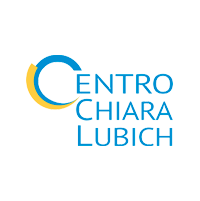Profile
Igino Giordani still challenges us today with his life, by giving witness to a culture and politics that values coherence, dialogue and peace building.
Writer, journalist, politician, a promoter of ecumenism and a patrologist, co-founder of the Focolare Movement alongside Chiara Lubich, he is a multifaceted personality who has left profound traces and opened up prophetic perspectives on a cultural, political, ecclesial and social level.
Igino Giordani was born on 24 September 1894 in Tivoli, to a family of humble origins, the first of six children. From his primary schools years he worked with his father, a bricklayer, and left school for a year to devote himself to this work. With the help of those who appreciated his intelligence, he resumed his studies: at the junior seminary and at the public high school, proving to be a brilliant student.
Wartime – As soon as he graduated, when the First World War broke out, he was conscripted into the Army and sent to the trenches of Karst. Giordani never fired a single shot at the enemy, so as not to kill ‘a brother’. He was shot by an Austrian sniper, sustaining such serious injuries that he spent three years in hospital; he had to undergo eleven operations, and was awarded a silver medal … then an encounter with God. The writings of a lay person, Contardo Ferrini, who later became a saint, help him discover that even in the midst of the world, holiness can be reached.
Political and cultural commitment – In 1919, Luigi Sturzo’s proclamation to the ‘free and strong’ found Igino Giordani lying on a bed in the military hospital, between surgeries, alternating with the university exams Giordani was taking at the Faculty of Letters at Rome’s La Sapienza University. Giordani’s response was not long in coming: he was among the first to join the fledgling Popular Party.
In 1920 he married Mya Salvati. They had four children: Mario, Sergio, Brando and Bonizza.
During the years of the fascist regime, Giordani travelled the often risky path of denouncing the violence and climate of intimidation that fascism disseminated in Italian society. He suffered what Giordani calls ‘a social and political confinement’: deprived of all job opportunities, he left for the United States in 1927 where, on behalf of the Holy See, he attended courses in Librarian Sciences. He came into contact with the Protestant world and studied North American literature. On his return to Rome he worked as a manager at the Vatican Library: he renewed its cataloguing system and set up the school of librarianship.
On 2 June 1946, he was elected as a Member of Parliament and became one of those ‘constituent fathers’ who laid the ideal foundations of the Italian Republic. He was re-elected again in 1948, and in 1950 became a member of the Council of European Peoples in Strasbourg.
In September 1948, the meeting with Chiara Lubich. Igino was 54 years old, a famous writer, a committed politician, hagiographer and editor of newspapers, friend of bishops and met with pontiffs… and yet, faced with a young laywoman half his age, founder of a new spiritual lay movement, his life took a turn. He would later say: ‘All my studies, my ideals, the very events of my life seemed to me directed towards this goal… I could say that first I had searched; now I have found!’
He found an answer to his thirst for holiness with full participation, although married, in the life of the Focolare community, made up of consecrated single focolarini. Pure of heart and with his soul wide open to humanity, he thus opened up a new path to holiness to married people, then unheard of in the Church. Giordani brought to Chiara all the heritage of his intense political and professional life, as a married man, a family man, a man of culture, immersed in the world and history with courage and passion. Chiara saw in him the whole of humanity represented, with its sorrows and virtues, and considered him the seed of all the branches that she would gradually found, giving ever new development to the Movement. For the significant contribution he made to the implementation of the plan of unity inscribed in the foundress’ charism, he would be recognised by her as a co-founder.
In 1953, he was not re-elected to the Chamber of Deputies. For Giordani, it was an opportunity to dedicate himself full-time to the Focolare Movement. He then took over the editorship of Città Nuova, the Movement’s magazine (on which he would write until 1979), and was in charge of ‘Centro Uno’, the Movement’s ecumenical secretariat.
Significant was the publication of Laicato e sacerdozio (1964), shortly before Lumen Gentium, in which Giordani offered a lucid anticipation of the Council’s themes on the Catholic laity, bringing to a close a research that had occupied him for many years.
In 1974, on the death of his beloved wife Mya, Igino joined a focolare in Rocca di Papa (Rome), at the then Mariapolis Centre, at the heart of the organisational structure of the Movement.
On 18th April 1980 he ended his earthly journey in Rocca di Papa. Chiara and all those close to him over the last thirty years point to him as ‘the man of the beatitudes’.
Beatification Process – In 2004, the cause for the beatification of Igino Giordani officially opened in the cathedral of Frascati, the diocese where he ended his days. Concluded at the diocesan level on 27 September 2009, it is now in its second phase, at the Congregation for the Causes of Saints.



